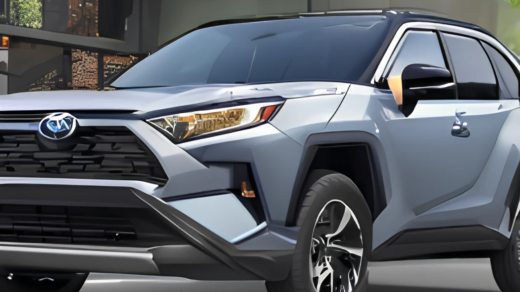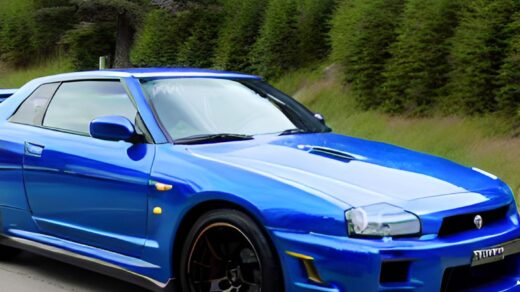Porsche 911
Introduction
The Porsche 911 is a high-performance sports car made by the German automaker Porsche. It is known for its distinctive design, powerful engines, and excellent handling. The Porsche 911 has been in production since 1963 and has undergone many updates and changes over the years. The latest models feature turbocharged engines, advanced suspension systems, and advanced safety features. The 911 is considered a luxury sports car and is priced accordingly. It has a reputation for being a driver’s car and is highly regarded by car enthusiasts. Some of the cons are that it is not very fuel-efficient and the ride can be harsh.
Performance
The Porsche 911 is known for its high performance and excellent handling. The latest models feature turbocharged engines that produce substantial horsepower and torque. The 911 Carrera S, for example, has a 3.0-liter twin-turbocharged flat-six engine that produces 443 horsepower and 390 lb-ft of torque. The 911 Turbo S, on the other hand, has a 3.8-liter twin-turbocharged flat-six engine that produces 640 horsepower and 590 lb-ft of torque. These engines are paired with a smooth-shifting 8-speed dual-clutch transmission or a 7-speed manual transmission, which allows for quick and precise gear changes. The 911 also features advanced suspension systems and braking systems that provide excellent handling and stability. With the right options, the 911 can accelerate from 0-60mph in as little as 2.5 seconds.
Fuel Efficiency
The Porsche 911 is not known for its fuel efficiency, as it is a high-performance sports car designed for speed and performance rather than fuel economy. The 911’s powerful engines and sport-tuned suspension systems can consume a lot of fuel, especially when driven aggressively.
The 911 Carrera S, for example, has an EPA-estimated fuel economy of 20 miles per gallon in the city and 27 mpg on the highway. The 911 Turbo S, on the other hand, has an EPA-estimated fuel economy of 17 mpg in the city and 22 mpg on the highway.
It is worth noting that fuel economy can be affected by a variety of factors such as driving style, road conditions, and vehicle options. So, these numbers are just an estimation and could vary depending on how the car is used.
Overall, the Porsche 911 is not the most fuel-efficient car, but it’s not meant to be. If you’re looking for a car that prioritizes fuel economy, you may want to consider other options. However, if you’re looking for a high-performance sports car that delivers a thrilling driving experience, the 911 is an excellent choice.
Comfort and Convenience
The Porsche 911 is a high-performance sports car that prioritizes performance over comfort and convenience. However, Porsche has made efforts to make the 911 more comfortable and convenient for daily use.
In terms of comfort, the 911 features leather-trimmed seats that are both supportive and comfortable, even for long trips. The cabin is well-insulated, so road and wind noise are kept to a minimum, making for a peaceful driving experience.
In terms of convenience, the 911 comes with a variety of standard and optional features. Standard features include a touchscreen infotainment system, Bluetooth connectivity, and a rearview camera. Available options include a premium audio system, navigation, and a sunroof. It also has a decent-size trunk and rear seat, making it more practical than some other sports cars.
Additionally, the latest models come with advanced driver assistance systems such as lane departure warning, forward collision warning, automatic emergency braking, and more.
Overall, while the 911 is not a luxury sedan and comfort and convenience are not its main focus, Porsche has made efforts to make it more livable for daily use.
Interior and Exterior Design
The Porsche 911 has a distinctive design that is instantly recognizable as a 911. The exterior design is sleek, sporty, and aerodynamic, with a long hood, a short rear deck, and a fastback roofline. The latest models feature LED headlights, taillights, and daytime running lights, giving the 911 a modern and sophisticated look. The 911 also comes with a variety of wheel designs and sizes, ranging from 18 inches to 21 inches.
The interior of the 911 is designed with the driver in mind. The cockpit is driver-focused, with all the controls and displays arranged in a logical and easy-to-use layout. The 911 features leather-trimmed seats, a leather-wrapped steering wheel, and high-quality materials throughout the cabin. The front seats offer a good amount of space and comfort, but the rear seats are tight, making them best for occasional use or for children.
The 911 also has a high-quality infotainment system that is user-friendly and easy to navigate. The 911 also comes with a variety of color combinations and options for the interior, including different types of leather, Alcantara, and carbon fiber trims.
Overall, the Porsche 911 has a timeless and iconic design that is both sporty and elegant. The interior is well-crafted and driver-focused, with a high-quality infotainment system and a variety of color and trim options.
Safety
The Porsche 911 is a high-performance sports car that prioritizes performance over safety. However, Porsche has made efforts to ensure that the 911 is as safe as possible.
The 911 comes with a variety of standard safety features, including anti-lock brakes, traction control, and stability control. It also comes with six airbags, including front, side, and curtain airbags, to protect the occupants in the event of a collision.
The latest models come with advanced driver assistance systems such as lane departure warning, forward collision warning, automatic emergency braking, and more. These systems use cameras, radar, and ultrasonic sensors to help the driver avoid accidents by alerting them to potential hazards on the road and even applying the brakes if necessary.
In terms of crash test ratings, the 911 has not been tested by the National Highway Traffic Safety Administration (NHTSA) and Insurance Institute for Highway Safety (IIHS) as of my knowledge cutoff.
Overall, while safety is not the main focus of the 911, Porsche has made efforts to ensure that it is as safe as possible with a variety of standard safety features and advanced driver assistance systems. It’s always advisable to check the latest ratings and reviews before making a purchase decision.
Reliability
Porsche 911s are generally considered to be reliable vehicles. However, like any car, they may experience issues over time and with high mileage. Regular maintenance and repairs can help ensure that a 911 continues to run smoothly. It is also important to note that certain 911 models may have higher reliability ratings than others, and older models may require more frequent maintenance.
Value for money
The Porsche 911 is a high-end sports car with a starting price of around $100,000. While it offers exceptional performance and handling, some may argue that it is not the best value for money compared to other sports cars in its class. The 911’s high cost of ownership, including maintenance and repairs, can also make it a less cost-effective option. However, it is worth noting that 911s are known for their long-term durability and retain their value well, which can make them a solid investment for some buyers.
Conclusion
The Porsche 911 is a high-performance sports car that offers exceptional driving dynamics and handling. It is known for its longevity and ability to retain its value well. However, it is also a high-end vehicle with a significant cost of ownership, including maintenance and repairs, which may make it a less cost-effective option for some buyers. Ultimately, whether the 911 is a good value for money will depend on the buyer’s individual needs, preferences and budget.

